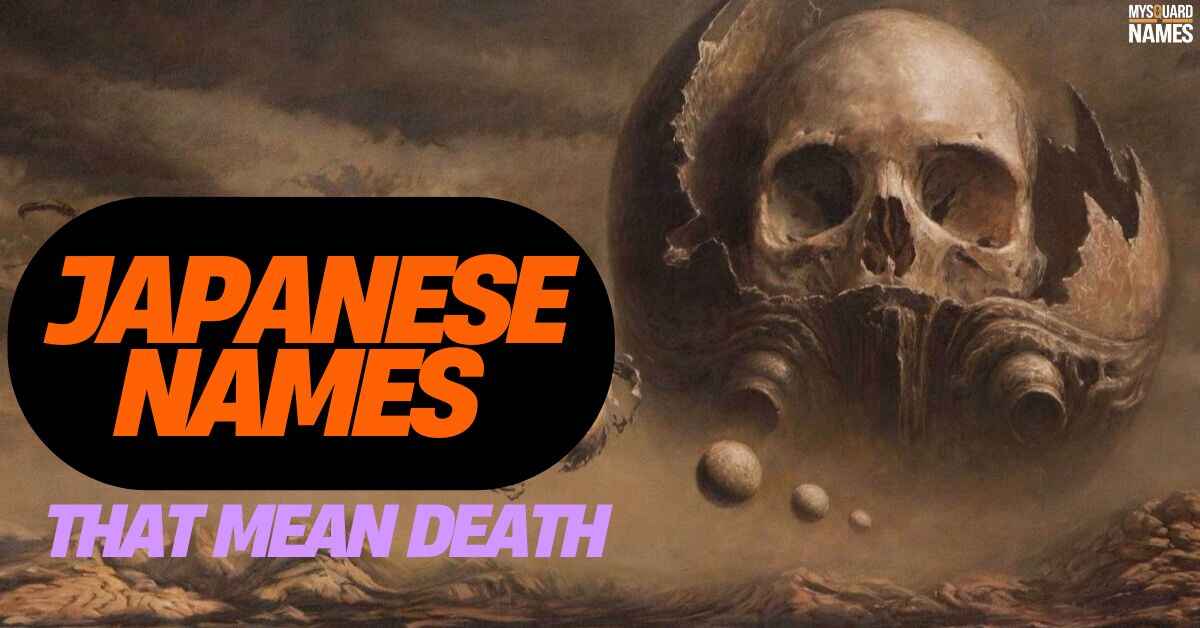Names carry deep meanings, reflecting culture, beliefs, and emotions. While many prefer names symbolizing strength or beauty, some seek names linked to death. In Japan, such names hold spiritual and philosophical significance. They often represent the cycle of life, impermanence, and resilience.
Japanese names associated with death are not necessarily negative. Many symbolize bravery, transformation, or a deep understanding of mortality. Some parents choose these names to instill fearlessness in their children. Others appreciate their poetic and historical depth.
From mythological figures to words tied to darkness, Japanese names with death-related meanings are intriguing. They appear in folklore, anime, and even traditional naming customs. Whether for a character or personal choice, these names hold powerful symbolism. Let’s explore their meanings and origins.
Why Choose a Japanese Name That Means Death?
Some people choose Japanese names that mean death to embrace life’s impermanence. These names can symbolize strength, fearlessness, or a deep connection to spirituality. They also carry poetic and cultural significance, making them unique and meaningful choices.
- Symbol of Strength – Represents fearlessness and resilience in facing life’s challenges.
- Spiritual Significance – Reflects beliefs in life, death, and rebirth within Japanese culture.
- Unique & Poetic – Offers a rare and meaningful name with deep historical roots.
- Cultural & Mythological Connection – Many names are linked to folklore, legends, or deities.
- Philosophical Meaning – Emphasizes the transient nature of life and acceptance of mortality.
Male Japanese Names That Mean Death
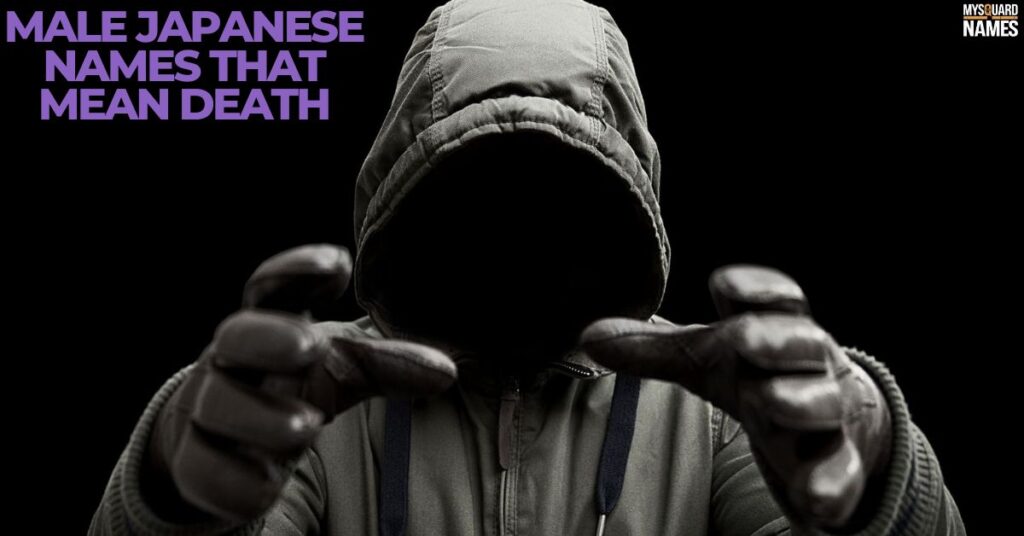
Male Japanese names that mean death often carry deep symbolism and cultural significance. Some represent darkness, spirits, or mythical figures tied to the afterlife.
These names can signify strength, fearlessness, or the acceptance of life’s impermanence. Whether inspired by folklore or philosophy, they hold powerful and intriguing meanings.
Traditional Male Names with Death-Related Meanings
Traditional male Japanese names with death-related meanings often come from mythology and history. These names reflect themes of darkness, spirits, and the cycle of life and death. They carry a sense of mystery, strength, and cultural depth.
- Shinigami (死神) – God of death
- Jigoku (地獄) – Hell
- Mu (無) – Nothingness
- Kuro (黒) – Black (symbolizing darkness)
- Ankoku (暗黒) – Deep darkness
- Yami (闇) – Darkness or shadow
- Kyomu (虚無) – Void or emptiness
- Senshi (戦士) – Warrior (one who may die in battle)
- Kaida (海田) – Little dragon (linked to mythical spirits)
- Akumu (悪夢) – Nightmare
- Oiwa (大岩) – Angel of death
- Sakamoto (坂本) – Death-escaped person
- Shisha (死者) – The deceased
- Hizumi (ひずみ) – Immortal
- Kage (かげ) – Shadow (symbolizing death’s presence)
- Yamiyo (闇夜) – Dark night
- Kuronushi (黒主) – Black lord
- Shikabane (屍) – Corpse
- Shinda (死んだ) – Dead
- Shibo (死亡) – Death
- Shiryō (死霊) – Spirit of the dead
- Ikiryo (生霊) – Departed spirit
- Shi no Kage (死の影) – Shadow of death
- Bankoku Shinigami (万国死神) – Death god of all nations
- Shijin (死人) – Dead person
- Kuroi Tenshi (黒い天使) – Black angel
- Fujiwara (不死原) – Never dying
- Shirotori (死鳥) – Dead bird
- Niekawa (贄川) – Sacrifice
- Kurayami (暗闇) – Deep darkness
Modern and Unique Male Names That Signify Death
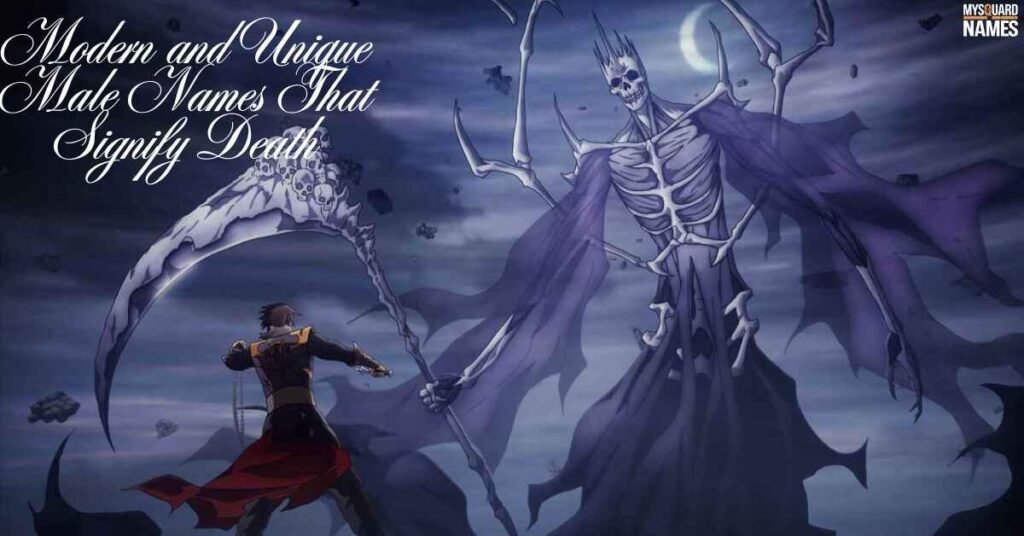
Modern Japanese names with death-related meanings often blend tradition with uniqueness. These names carry dark, mysterious, or symbolic elements linked to mortality. They offer a fresh take on ancient themes while maintaining a deep, eerie appeal.
- Shinigai (死骸) – Means “remains” or “corpse”
- Kuragami (暗神) – Means “dark god”
- Jishin (死心) – Means “dead heart” or “resigned spirit”
- Fukushiro (福死郎) – Means “fortunate death”
- Anrai (暗雷) – Means “dark thunder”
- Shisoku (死息) – Means “last breath”
- Tenmu (天無) – Means “heaven’s void”
- Yorugan (夜幻) – Means “night illusion”
- Kuruto (黒人) – Means “black person,” symbolizing death
- Hazuki (破月) – Means “broken moon”
- Kaijin (灰神) – Means “ash god”
- Norui (呪井) – Means “cursed well”
- Shikyo (死鏡) – Means “death mirror”
- Ruinji (類陰寺) – Means “shadow temple”
- Higure (日暮) – Means “twilight” or “sunset”
- Kurai (暗い) – Means “darkness”
- Reikon (霊魂) – Means “departed soul”
- Gensai (幻災) – Means “phantom disaster”
- Inmu (陰夢) – Means “shadow dream”
- Kagetoki (影時) – Means “shadow time”
- Shokai (死界) – Means “death realm”
- Yorutaka (夜高) – Means “high night”
- Shiryoku (死力) – Means “death’s power”
- Meishi (冥死) – Means “deep death”
- Boushi (亡志) – Means “lost will”
- Mugetsu (無月) – Means “moonless”
- Tenshiro (天死郎) – Means “heaven’s death son”
- Senkai (仙界) – Means “realm of spirits”
- Kurayoru (暗夜) – Means “dark night”
- Kurogami (黒神) – Means “black god”
Read this Blog:400+ Farewell Party Names for a Memorable Send-Off
Female Japanese Names That Mean Death
Female Japanese names that mean death often carry a sense of power and mystery. These names can reflect themes of darkness, rebirth, or the spiritual realm.
They symbolize the acceptance of life’s fleeting nature and embody strength through adversity. Rooted in tradition, they offer deep cultural and philosophical meanings.
Elegant Female Names with Death Symbolism
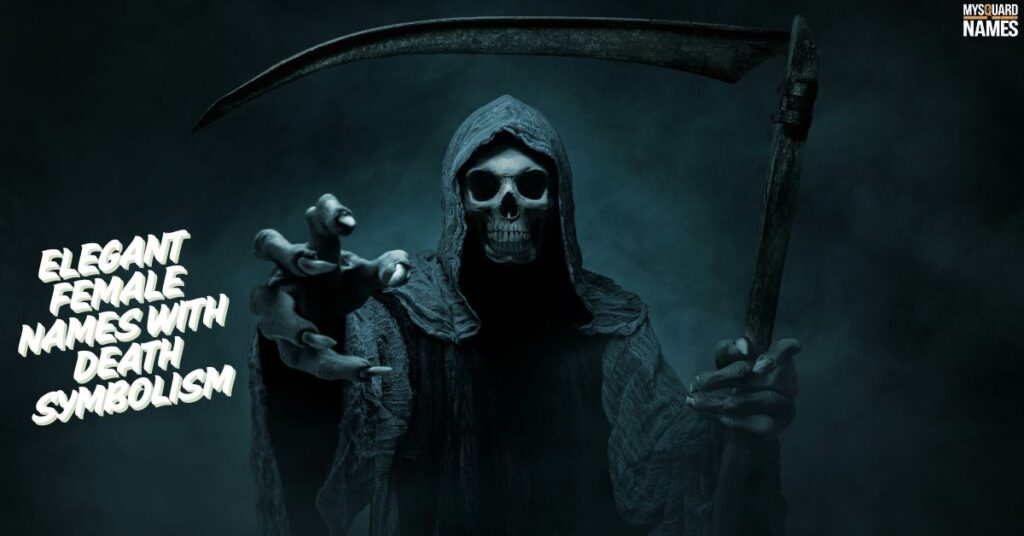
- Shi no Onna – Death Woman
- Yami no Akuma – Dark Devil
- Shinigami Musume – Death God’s Daughter
- Mujo – Impermanence
- Samsara – Cycle of Rebirth
- Shinu – To Die
- Mayoi – Lost
- Anraku – Peaceful Death
- Shi – Death
- Shian – Death or Impurity
- Ikiryo – Departed Spirit
- Shiryō – Spirit of the Dead
- Shibo – Death
- Shi no Kage – Shadow of Death
- Yami no Tenshi – Angel of Darkness
- Bankoku Shinigami – Death God of All Nations
- Shinidamachu – Dead Sweetheart
- Shijin – Dead Person
- Kuroi Tenshi – Black Angel
- Yamiyo – Dark Night
- Tenshi no Shi – Angel of Death
- Yami – Darkness
- Shikabane – Corpse
- Owari – End
- Kurayami – Darkness
- Kuroi Yume – Black Dream
- Sei Shi – Holy Death
- Jigoku no Onna – Woman of Hell
- Makai no Reimu – Demon Spirit
- Rei no Yume – Spirit Dream
Rare and Mysterious Female Names That Mean Death
Rare and mysterious female names that mean death often carry an air of intrigue. These names, rooted in mythology and cultural beliefs, evoke a sense of the unknown. They symbolize strength, transformation, and the natural cycle of life and death.
- Shi no Onna (死の女) – Death Woman
- Yami no Akuma (闇の悪魔) – Dark Devil
- Shinigami Musume (死神娘) – Death God’s Daughter
- Shi (死) – Death
- Mayoi (迷い) – Lost
- Samsara (輪廻) – Cycle of Rebirth
- Shinu (死ぬ) – To Die
- Mujo (無常) – Impermanence
- Shian (死穢) – Death or Impurity
- Mezame (目覚め) – Awakening or Enlightenment
- Anraku (安楽) – Peaceful Death
- Yami no Tenshi (闇の天使) – Angel of Darkness
- Ikiryo (生霊) – Departed Spirit
- Shiryō (死霊) – Spirit of the Dead
- Shibo (死亡) – Death
- Shi no Kage (死の影) – Shadow of Death
- Bankoku Shinigami (万国死神) – Death God of All Nations
- Shinidamachu (死んだままちゅ) – Dead Sweetheart
- Shijin (死人) – Dead Person
- Kuroi Tenshi (黒い天使) – Black Angel
- Shinreika (死霊化) – Transformation into a Spirit
- Roku (六) – Death’s Number
- Makai (魔界) – Demon World
- Yamiyo (闇夜) – Dark Night
- Kuroi Yami (黒い闇) – Black Darkness
- Akai Shi (赤い死) – Red Death
- Kuroshio (黒潮) – Black Current (symbolizing a death tide)
- Hakka (薄荷) – Mint, referencing the coolness of death
- Sokushinbutsu (即身仏) – A term for a mummified monk
- Sokushi (即死) – Instant Death
Japanese Last Names That Mean Death
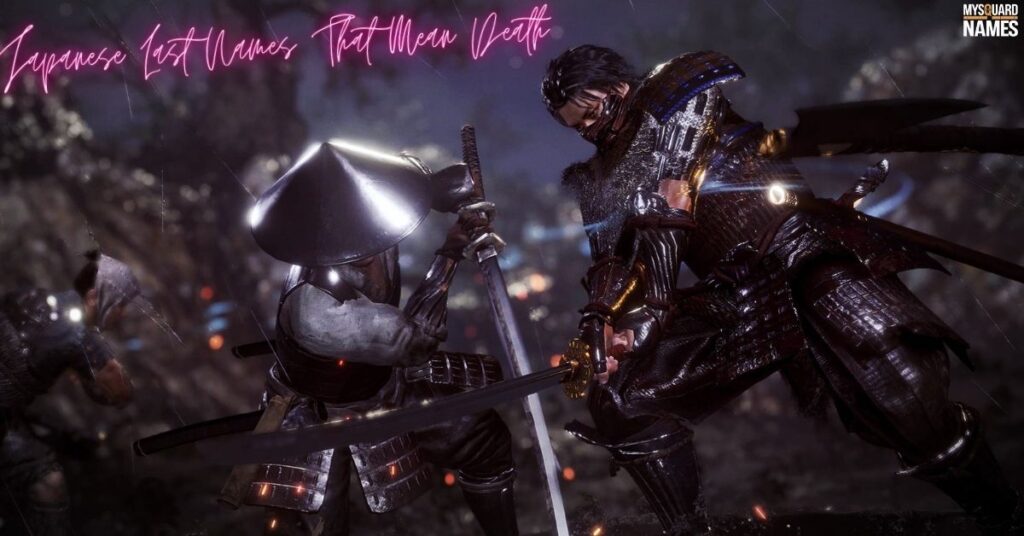
Some Japanese last names carry meanings related to death, darkness, or the afterlife. Names like Shimizu (死水), meaning “death water,” or Kuroishi (黒石), meaning “black stone,” evoke mysterious and ominous imagery.
Others, like Yamiguchi (闇口), meaning “mouth of darkness,” suggest a connection to the unknown. These surnames often have historical or mythological ties, adding to their depth and intrigue.
Samurai and Historical Last Names
Samurai and historical Japanese last names often reflect strength, honor, and legacy. Some, like Shibata (柴田) and Takeda (武田), are linked to famous warriors. These names carry deep historical significance and sometimes symbolize life, death, and rebirth.
- Tokugawa (徳川) – Famous shogun dynasty.
- Oda (織田) – From Oda Nobunaga, a powerful daimyo.
- Takeda (武田) – Linked to Takeda Shingen, a great warlord.
- Minamoto (源) – An influential samurai clan.
- Taira (平) – A rival clan to the Minamoto.
- Ashikaga (足利) – Founded the Ashikaga shogunate.
- Uesugi (上杉) – A respected samurai family.
- Sanada (真田) – Known for the legendary Sanada Yukimura.
- Imagawa (今川) – A powerful daimyo clan.
- Mōri (毛利) – A strong feudal family.
- Hōjō (北条) – Rulers of Kamakura and later Odawara.
- Chōsokabe (長宗我部) – Samurai clan from Shikoku.
- Ryūzōji (龍造寺) – Influential in Kyushu.
- Date (伊達) – Led by the famous Date Masamune.
- Shibata (柴田) – Known for general Shibata Katsuie.
- Kuroda (黒田) – A respected samurai lineage.
- Satake (佐竹) – Prominent in the Sengoku period.
- Hosokawa (細川) – A notable feudal family.
- Yagyū (柳生) – Famous for swordsmanship.
- Arima (有馬) – Samurai clan from Kyushu.
- Hatakeyama (畠山) – Once a powerful warlord family.
- Matsudaira (松平) – Ancestral family of Tokugawa Ieyasu.
- Itō (伊東) – A lesser-known but important clan.
- Gamo (蒲生) – Served Oda Nobunaga and Toyotomi Hideyoshi.
- Ōtomo (大友) – A daimyo family of Kyushu.
- Akita (秋田) – A samurai clan in northern Japan.
- Sagara (相良) – Ruled parts of Kyushu.
- Ikeda (池田) – Samurai family tied to the Tokugawa.
- Saitō (斉藤) – Famous for Saitō Dōsan, a powerful warlord.
- Fujibayashi (藤林) – A renowned ninja family.
Rare and Unique Last Names Linked to Death

Some rare Japanese last names have meanings tied to death, darkness, or the afterlife. These names often come from ancient folklore, samurai history, or spiritual beliefs. They carry a mysterious and powerful aura, making them unique choices.
- Shinigami (死神) – “Death God”
- Shikabane (屍) – “Corpse”
- Shinda (死んだ) – “Deceased”
- Shishimaru (死者村) – “Village of the Dead”
- Shi no Kage (死の影) – “Shadow of Death”
- Kurayami (暗闇) – “Darkness”
- Yamiuchi (闇打) – “Strike of Darkness”
- Ankoku (暗黒) – “Deep Darkness”
- Shiryō (死霊) – “Spirit of the Dead”
- Ikiryo (生霊) – “Departed Soul”
- Shibo (死亡) – “Death”
- Meifu (冥府) – “Underworld”
- Jigoku (地獄) – “Hell”
- Bankoku Shinigami (万国死神) – “Death God of All Nations”
- Kuronushi (黒主) – “Black Lord”
- Mujo (無常) – “Impermanence”
- Shinidamachu (死んだままちゅ) – “Dead Sweetheart”
- Yamiyo (闇夜) – “Dark Night”
- Kyomu (虚無) – “Void or Nothingness”
- Uramushi (裏死) – “Reverse Death”
- Shinitai (死にたい) – “Desire to Die”
- Kowakuma (恐ろしい死) – “Dreadful Death”
- Shirotori (死鳥) – “Dead Bird”
- Niekawa (贄川) – “Sacrifice River”
- Fujiwara (不死原) – “Eternal Life” (ironically tied to death themes)
- Tenshiko (天死子) – “Heaven’s Death Child”
- Mayoi (迷い) – “Lost Soul”
- Kuroishi (黒石) – “Black Stone” (linked to mourning)
- Shian (死穢) – “Death Impurity”
- Kuroi Tenshi (黒い天使) – “Black Angel”
Japanese Names That Mean Death, Darkness, or Demon
Japanese names that mean death, darkness, or demon often carry deep, symbolic meanings rooted in folklore and mythology. Names like Shinigami (死神) mean “God of Death,” while Yami (闇) represents darkness itself.
Some, like Oni (鬼), refer to demons or supernatural beings feared in Japanese culture. These names evoke mystery, power, and a connection to the spiritual world.
Names Associated with Dark Spirits and the Underworld
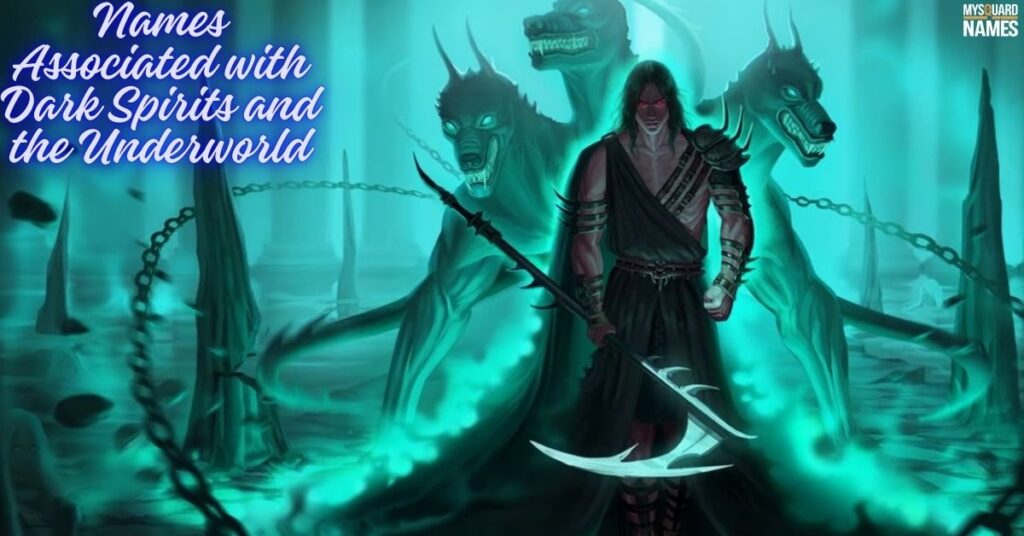
Names linked to dark spirits and the underworld often carry eerie and powerful meanings. They reflect myths, legends, and supernatural beliefs in Japanese culture. Such names symbolize mystery, the unknown, and the connection between life and death.
- Shinigami (死神) – God of Death
- Yami (闇) – Darkness
- Jigoku (地獄) – Hell
- Kurayami (暗闇) – Deep Darkness
- Akumu (悪夢) – Nightmare
- Ankoku (暗黒) – Gloom or Darkness
- Mu (無) – Nothingness
- Kyomu (虚無) – Void or Nihility
- Meifu (冥府) – Underworld
- Ikiryo (生霊) – Departed Spirit
- Shiryō (死霊) – Spirit of the Dead
- Onryo (怨霊) – Vengeful Spirit
- Goryo (御霊) – Restless Soul
- Bakemono (化け物) – Shape-Shifting Spirit
- Kage (影) – Shadow
- Kuronushi (黒主) – Black Lord
- Shikabane (屍) – Corpse
- Shibo (死亡) – Death
- Shi no Kage (死の影) – Shadow of Death
- Mayoi (迷い) – Lost Soul
- Samsara (輪廻) – Cycle of Rebirth
- Mujo (無常) – Impermanence
- Shian (死穢) – Death or Impurity
- Kuroi Tenshi (黒い天使) – Black Angel
- Yamiyo (闇夜) – Dark Night
- Bankoku Shinigami (万国死神) – Death God of All Nations
- Shinda (死んだ) – Dead
- Shijin (死人) – Dead Person
- Uramushi (裏死) – Reverse Death
- Shinitai (死にたい) – Desire for Death
Supernatural and Mythological Names Related to Death
Many supernatural and mythological names are linked to death in Japanese culture. They come from folklore, spirits, and gods that rule the underworld. These names often symbolize power, mystery, and the afterlife.
- Shinigami (死神) – “God of Death” in Japanese folklore
- Yami (闇) – “Darkness” symbolizing death
- Jigoku (地獄) – “Hell” in Japanese mythology
- Mu (無) – “Nothingness” or the void of existence
- Ankoku (暗黒) – “Darkness” or “Gloom”
- Shiryō (死霊) – “Spirit of the dead”
- Ikiryo (生霊) – “Departed spirit”
- Shibo (死亡) – “Death”
- Shi no kage (死の影) – “Shadow of death”
- Mezame (目覚め) – “Awakening” (symbolizing rebirth after death)
- Kuroi Tenshi (黒い天使) – “Black Angel” representing death
- Mayoi (迷い) – “Lost” soul or wandering spirit
- Shian (死穢) – “Death” or “Impurity”
- Fujiwara (藤原) – “Never dying” in reference to immortality
- Samsara (輪廻) – “Cycle of Rebirth”
- Yamiyo (闇夜) – “Dark Night,” symbolizing death
- Kuro (黒) – “Black,” associated with darkness and mourning
- Shijin (死人) – “Dead person”
- Bankoku Shinigami (万国死神) – “Death god of all nations”
- Shinidamachu (死んだままちゅ) – “Dead sweetheart”
- Kurayami (暗闇) – “Deep Darkness”
- Shinda (死んだ) – “Dead”
- Uramushi (裏死) – “Reverse Death”
- Shikabane (屍) – “Corpse”
- Kowakuma (恐ろしい死) – “Dreadful Death”
- Shirotori (死鳥) – “Dead Bird,” symbolizing the end of life
- Niekawa (贄川) – “Sacrifice”
- Oiwa (大岩) – “Angel of Death”
- Senshi (戦士) – “Die in a Battle”
- Shinitai (死にたい) – “Want to Die”
Conclusion
Choosing a Japanese name that means death can carry profound meaning, transcending its initial association with negativity. These names symbolize strength, resilience, and the natural cycle of life and death, reflecting the cultural reverence for life’s impermanence. Whether inspired by mythology, spirituality, or folklore, names related to death often evoke mystery and power, connecting individuals to deep cultural traditions. While such names may be unconventional, they provide unique expressions of courage, acceptance, and philosophical reflection. Ultimately, they allow one to embrace mortality and its inevitable role in the human experience, offering a meaningful perspective on life.
